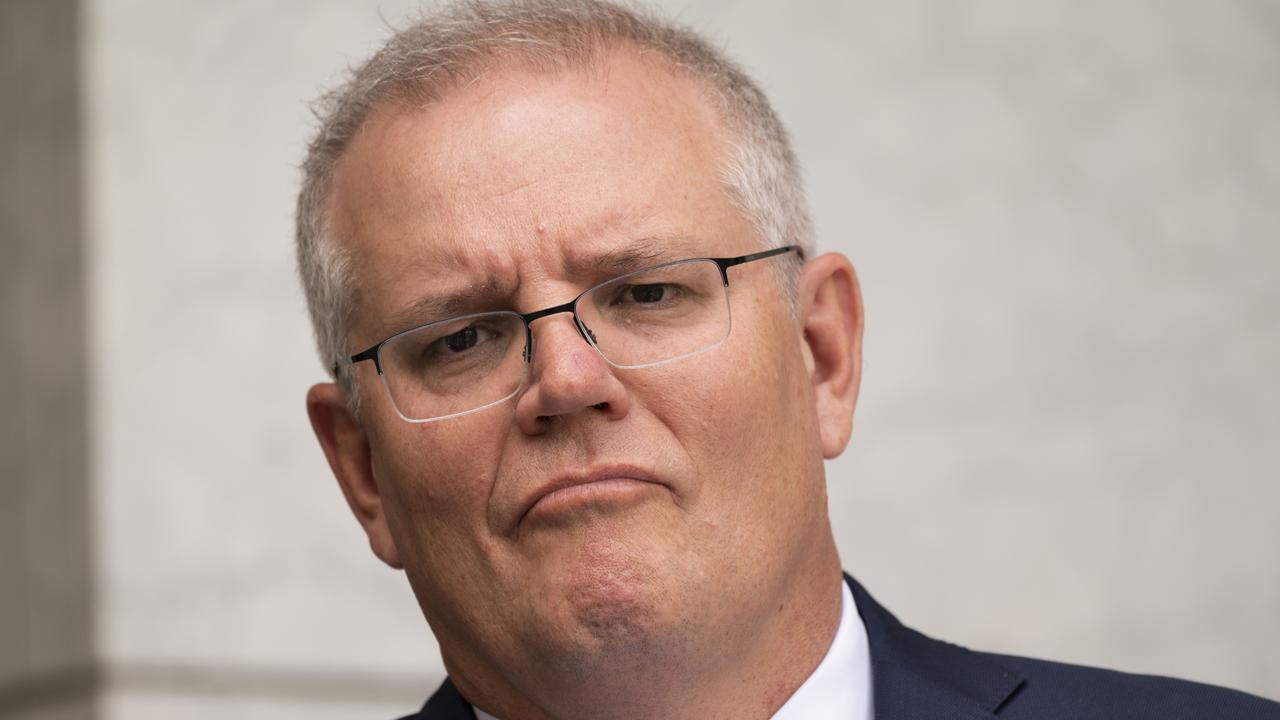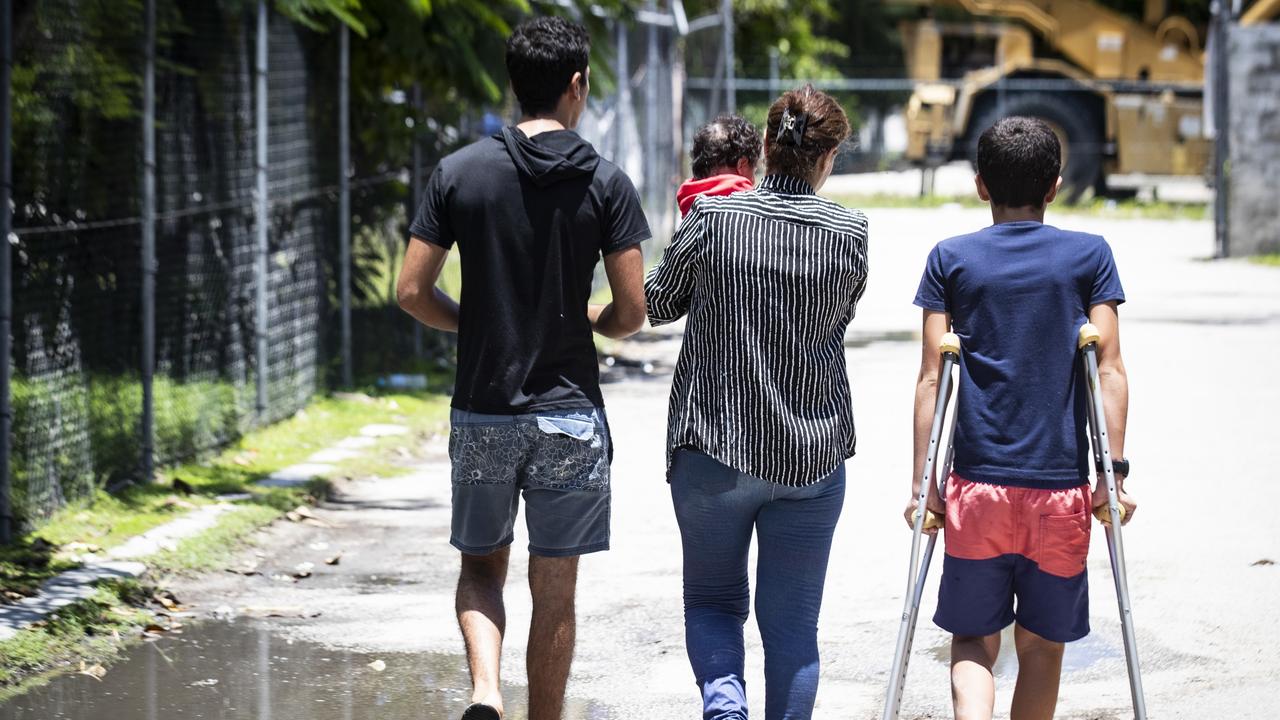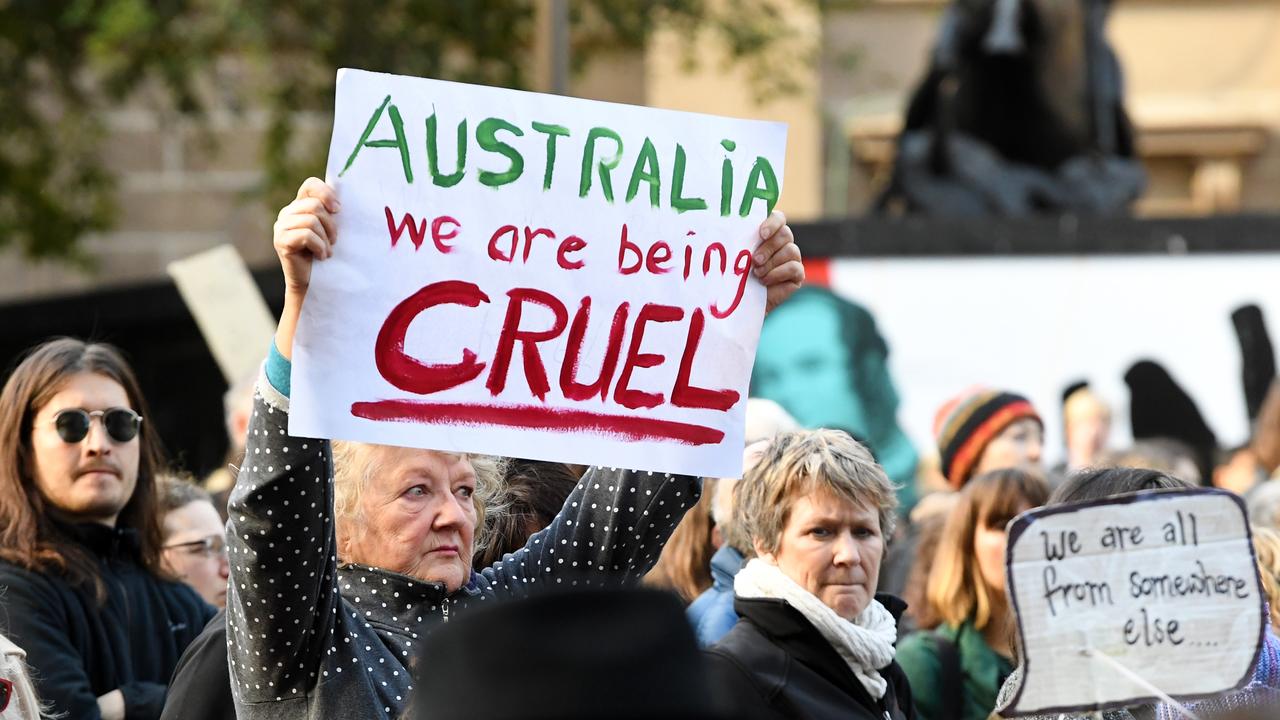China labels Australia ‘racist’ after UN review finds human rights failings
China has slammed Australia for its “racism problem” and even offered five recommendations for Canberra to combat “violence” and “hate speech”.
Beijing has launched an assault on Canberra at the United Nations, accusing it of racism, human rights hypocrisy and making false accusations.
Australia’s human rights performance was up for review at the UN this week.
Its scorecard was … mixed.
As a signatory to the convention, Canberra agrees to be assessed by its international forum peers. The hearing noted the continued lack of progress in improving Aboriginal and Torres Strait Islanders’ lives – whether it be incarceration rates or recognition of their rights.
As a result, Canada, France, Germany, Italy, Poland and Mexico have led a group of 31 nations calling on Australia to lift the age of criminal responsibility from 10 to 14.
Canberra acknowledged the “need to do better”, stating “challenges remain” before its “Closing the Gap” policies would produce observable results.
RELATED: Satellite pictures reveal China’s master plan

Beijing, however, senses an opening.
How can Canberra berate Beijing for repressing its Uighur ethnic minority when it treats its own people this way?
But there is more.
It accuses Australia of racism.
“Longstanding racism could lead to another ‘Floyd tragedy’.”
It accuses Australia of false allegations.
“Accusations over China’s issues including that of Xinjiang and Hong Kong are solely for political purposes.”
It accuses Australia of hypocrisy.
“It has turned blind to its home problems and doesn’t really care about human rights … This is not just a social but systematic problem,” the Global Times declared.
MIGHT MAKES RIGHT?
Chinese Foreign Ministry spokesman Hua Chunying took the human rights fight up with Australia at a press conference on Thursday.
“China hopes that Australia will take the opinions of the international community seriously, face its human rights issues squarely, and take concrete measures to improve its human rights situation and contribute to the sound development of the global human rights cause,” he said.
The manoeuvre is being played out on the world stage.
China’s UN delegation has submitted five “recommendations” to Canberra: “Combat racial discrimination, hate speech and violence and protect the rights of ethnic minorities and eliminate systematic discrimination against Indigenous Australians.”
RELATED: ‘Counterstrike’: China threatens Australia

It also called on Canberra to close its offshore detention centres and conduct a “thorough” investigation into Afghanistan war crimes.
Expert warn #Australia's racism problem could lead to another " #Floyd tragedy." It smears China on #Xinjiang and #HK issues solely for political purposes, while has turned blind to its own problems, including how it treats indigenous people. https://t.co/sLQOdlzWA4 pic.twitter.com/w43Xv8CGRM
— Global Times (@globaltimesnews) January 21, 2021
China’s Communist Party (CCP) controlled media has once taken up the task of hammering Australia. It’s mouthpiece, the Global Times, has published a fresh attack on Canberra’s character.
“The human rights issues raised by the UN countries are deep-rooted, longstanding and critical in Australia,” wrote Shanghai-based Australian Studies director Chen Hong. “The racism and attendant police enforcement in Australia are similar with those in the US, and he’s worried it could lead to another ‘Floyd tragedy’ and social conflicts.”
Mr Chen said Canberra’s hypocrisy demonstrated “the country’s indifference in true human rights issues and craze for political gains”.
RELATED: China’s shameless move to exploit US chaos

GLASS HOUSES
Canberra’s standing as a beacon of international law and Western democratic values is a tarnished one, making it vulnerable to diplomatic attack.
It faces sustained criticism for its treatment of Indigenous Australians and asylum seekers. Its attitudes towards the plight of the Palestinian people and the growing impact of climate change are also controversial.
It’s also no stranger to the use of detention centres, wrote Australian Lawyers Alliance spokesman and former Liberal Party senior adviser Greg Barnes.
“While the image of Australia as a champion of human rights is convenient in the context of a spat with a one-party state like China, the reality is very different. Over the past 20 years, in particular, Australia has become a pariah when it comes to upholding ‘freedom and democracy’.”
Writing in the Hong Kong-based South China Morning Post (which is now subject to Chinese Communist Party editorial controls), Mr Barnes said: “It is downright hypocritical to be portraying itself now, in the context of tensions with China, as a global citizen committed to Western values like the rule of law and human rights.”
Canberra regularly accuses Beijing of not “playing by the rules” established by Western democracies in response to World War II’s horrors.
“In fact, when the UN’s special rapporteur on torture, Juan E. Méndez, said in 2015 that the policies being pursued by Australia amounted to torture or cruel, inhuman or degrading treatment, then Australian prime minister Tony Abbott simply said: ‘I really think Australians are sick of being lectured to by the United Nations,’” Mr Barnes wrote.
STANDING UP TO CHINA
Chairman-for-life Xi Jinping’s vision of a world with Chinese characteristics is the future Australia must follow – not the “dictatorship” of the US, wrote China Institute of International Studies vice president Liu Qing.
This came after Prime Minister Scott Morrison declared Australia and the United States to be the “best of mates” and the alliance as having “never been more important”.
It’s not what Chairman Xi wanted to hear.
“If Canberra chooses to continue on the wrong path with its relationship with China, rather than timely adjust its approach to align with the mainstream and dominant development trends, its own long-term interests will bear the damage,” Liu wrote.
Opinion: Australia should develop relations with China independently, constructively. Placing itself in a subordinate position, always listening to dictates from Washington clearly not in line with its long-term interests. https://t.co/JK0JSwu5Ur pic.twitter.com/nnifXjFSDL
— Global Times (@globaltimesnews) January 20, 2021
“It is hoped that the Morrison administration will take action conducive to co-operation with China, so as to provide conditions to bring the frayed bilateral relations back onto the right track, instead of further cloud the prospect.”
Meanwhile, Canberra has continued to upset Beijing.
Its criticisms have been varied and loud – human rights abuses, cyber-attacks, territorial expansionism, industrial espionage, political interference.
Will anybody listen?
There’s an intense economic and diplomatic battle for the “hearts and minds” of South-East Asia and Pacific nations.
Reputations – and actions – are suddenly immensely relevant.
“Australia is a democracy, but it’s a nation that has lost much of its lustre in global human rights and values circles over the past 20 years,” Mr Barnes wrote. “To present Australia as being the ‘good guy’, facing up to the dark threat of China, is simplistic at best and, worse, misleading.”
Jamie Seidel is a freelance writer | @JamieSeidel




